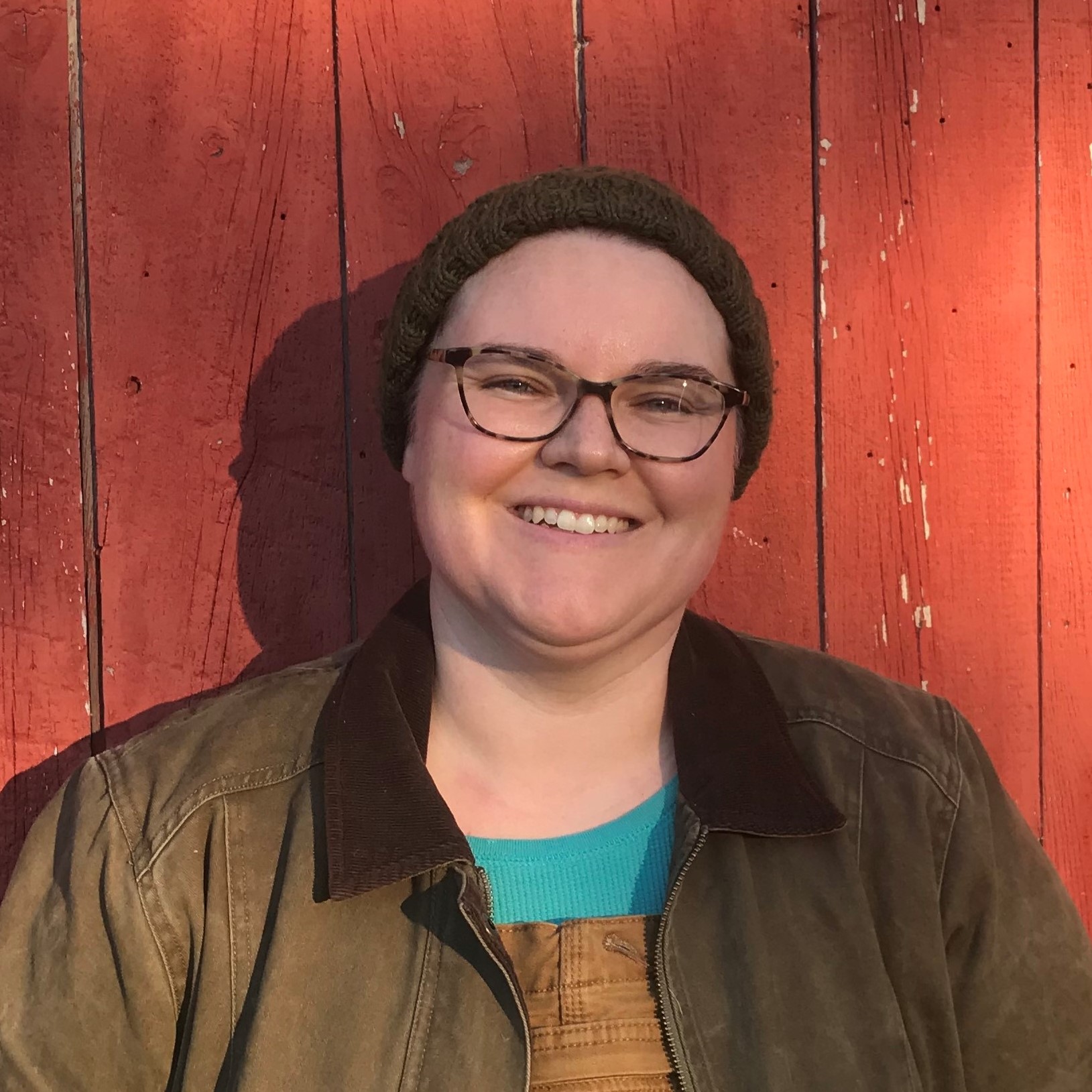Julia received their PhD in Philosophy at Michigan State University, writing their dissertation on palliative and remembrance ethics for the dead and the dying of climate change. They envision their research taking shape where the boundaries between feminist, political, and environmental philosophy grow pleasantly and productively murky. Before obtaining their MA in Philosophy with a certificate in Gender and Women’s Studies from the University of Colorado, Julia spent a number of years in Portland, OR working at an international salmon conservation organization and as a collective manager and produce expert at a community owned grocery store. They received their BA in Philosophy and Russian Studies from William Smith College.
Julia has authored publications in environmental ethics, ecocriticism, bioethics, technology studies, mobilities studies, and animal ethics. During their postdoctoral fellowship in the Philosophy Department at Queen’s University, Julia explored the synthesis, tensions, and incommensurabilities of decolonial and interspecies justice. This research finds material, emotional, and spiritual expression on their family farm where Julia lives and works on unceded Wappinger territory. In addition to brush-hogging, berry picking, and chasing down cows, their lived philosophical practice on the Farm involves further developing death ethics as part of a holistic intergenerational politics on and for the lands they call home.
- PhD, Philosophy, Michigan State University
- MA, Philosophy, University of Colorado Boulder
- BA, Philosophy and Russian Language and Literature, William Smith College
My overarching goals as an educator are to encourage students to grow further along their own intellectual paths and to foster ethically and critically engaged community within and beyond the classroom. To achieve these ends, I employ a narrative-based approach to structuring and implementing my curricula. My narrative pedagogy emphasizes problem- and team-based learning and aims for students to contextualize their own and others’ stories within the communities that shape and are shaped by them. In so doing, students hone their skills for thinking critically, creatively, and interdisciplinarily about their own positions and engaging responsibly in dialogue with others who don’t agree with them. Ultimately, I endeavor for my students to be better equipped at the end of the term to contribute to their communities than they were to begin with.
Before each course, I ask myself what kind of story I want to tell. I am deeply concerned with whose stories my students will encounter in the process. By engaging a variety of interdisciplinary texts and tools, I work hard to ensure that my students can identify with both the overall narrative of the course and the stories they encounter therein. I frequently assign short stories/films by feminist, Afrofuturist, and/or Indigenous authors that serve as bridges between the course material and students’ own stories. Stories like these provide a more familiar access point into the world of the environmental humanities than do many academic texts. Indeed, conversations around these particular stories tend to be so rich that students continually come up with interpretations that I have scarcely thought of. It has been both humbling and rewarding to learn that students’ dialogue and analyses improve immensely when I do not assume to know how best to interpret or contextualize these and others’ stories.
I may not know how to solve the problems relevant to my students’ lives, but I endeavor to help them develop—in context—some of the tools they will need for addressing them. In my courses, students are not only exposed to stories/perspectives they might not otherwise have come across, they have to think deeply about issues that matter to them, hear from their fellow students about what they care about, and grapple with these differences together. Beyond facilitating skill-building for responsible dialogue, these activities are designed to enable students to see themselves as agents in their own stories and those of their communities. And while I will always remain deeply concerned with what narratives are communicated in and through my curricula, I also know that the most powerful stories often turn out to be the students’. These are the narratives that emerge as students find their voices and unfold with beautiful unpredictability over the course of the semester. Witnessing my students’ stories augment, supplant, and transform the narrative I had first envisioned is a privilege and a joy that inspires me in my work as an educator.
- Gibson, JD. (2023) “Practicing Palliation for Extinction and Climate Change: Weaving Death Ethics from Story and Practice.” Environmental Humanities.
- Gibson, JD. (2022) “Holographic Ethics for Intergenerational Justice: Planetary Politics through the Prism.” Environmental Philosophy.
- Gibson, JD. (2021) “The Indispensability of Holistic Species Experts for Ethical Animal Research.” Journal of Agricultural and Environmental Ethics.
- Gibson, JD. (2021) “Climate Justice for the Dead and the Dying: When Past-Oriented Environmentalism Isn’t Enough.” Environmental Philosophy.
- Gibson, JD & KP Whyte. (2021) “Philosophies of Science Fiction, Futures, and Visions of the Anthropocene” The Oxford Handbook of Philosophy of Technology.
- Gibson, JD. (2020) “Stories We Tell About the End of the World: (Post)Apocalyptic Climate Fiction Working Towards Climate Justice.” Paradoxa 31: Climate Fiction.
- Dissertation Proposal Seminar
- Environmental History
- Proposal Writing and Project Management
- Environmental Justice: Futures and Fictions
- Ecological Thought

